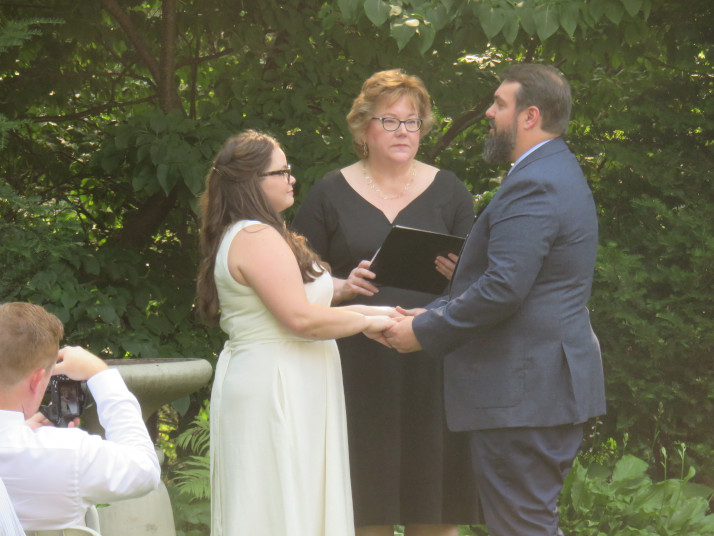The Role of a Wedding Celebrant
The role of a wedding celebrant is more than showing up at the appointed day and time. It is more than reading a generic ceremony with only your names slotted into the appropriate spots. The role of a wedding celebrant begins with your first contact, and ends when all the legalities are complete.

Your initial contact will include sharing the date and location of your wedding ceremony. The celebrant will let you know if they are available. The next step is to determine if you are a good match for each other. This is a crucial step that should not be overlooked. You’ll want to learn if the celebrant can provide the kind of ceremony you want. Religious, spiritual, and secular are the high level categories here. As a Humanist Celebrant who only offers secular ceremonies, I explain that the ceremonies I write and offer do not include any references to gods or the supernatural, and do not include any readings from holy books or prayers. Don’t hesitate to let the celebrant know what you want – there are no wrong answers here, only what’s right for you.
Another important role of a wedding celebrant is the creation of your ceremony. You’ll want to learn how they work to see if it matches with your style. Examples of questions to ask here are:
- Do you create custom ceremonies? Or do you provide samples of each ceremony element and we decide which we want to include?
- Do you ask for our input via questionnaires? And do we get to review and update a draft of the ceremony?
- Do you include a sermon, and if so, what do you talk about?
Consider how much time you’re willing to invest in your wedding ceremony to ensure you’re a good match for the celebrant.
The role of a wedding celebrant also can include running your rehearsal, if you’re having one. You’ll want to know if this is a service they provide, and if there is an additional fee to have them run your rehearsal.
And finally, the role of a wedding celebrant on the wedding day is crucial to understand. You’ll want to be clear on when they will arrive at the venue, if they will help organize the processional,
if they will need a microphone, and how they will handle signing the legal paperwork. Your stress will be reduced if you know what to expect from your celebrant.
It is true that your guests will see the work of the celebrant only for the duration of the ceremony, but I estimate that I spend 20+ hours on each ceremony I perform. The role of a wedding celebrant occurs mostly before the wedding day and behind the scenes. But a top notch celebrant can ensure a memorable, personal ceremony to start your wedding day celebration on a high note.
